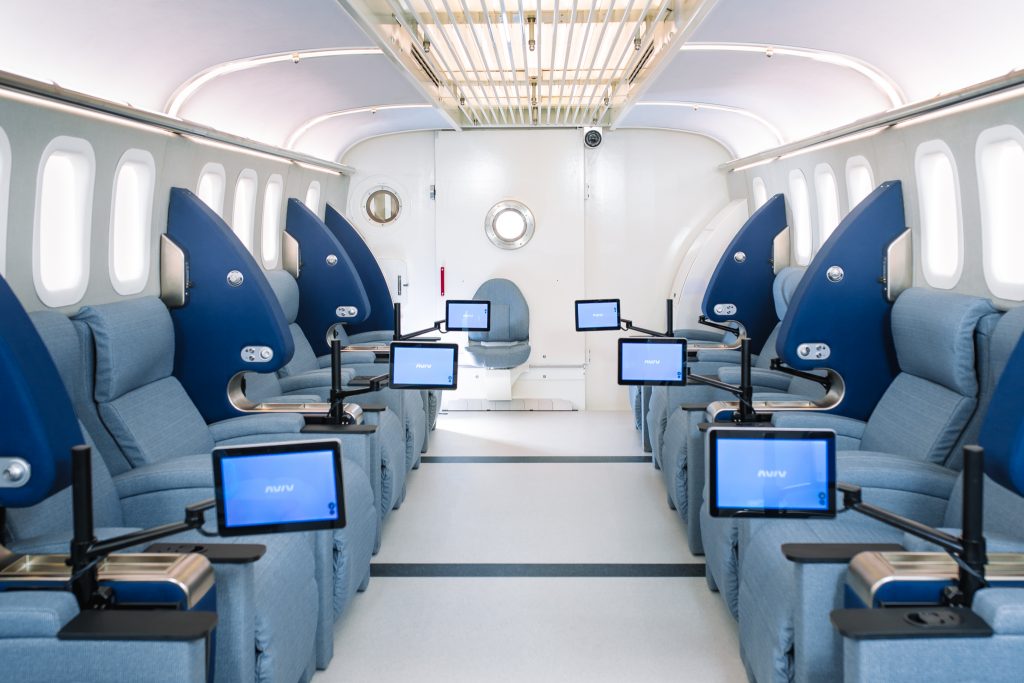Using Hyperbaric Oxygen Therapy to Address TBI and Concussion
Head injuries are much more common than one might think. According to the National Institutes of Health (NIH), an estimated 1.7 million Americans sustain a TBI each year. The Centers for Disease Control and Prevention (CDC) reports that there were over 64,000 TBI-related deaths in 2020, which equates to more than 175 brain injury-related deaths every day.
Those most affected include adolescents aged 15-19 and adults older than 65. Among seniors, falls are the most common cause of TBIs—a pervasive problem that can be mitigated with a few key strategies.
Yet, despite how pervasive TBIs are, many people don’t realize when they’re experiencing the “traumatic” incident. At one time, a mild traumatic brain injury (mTBI), which many know simply as a concussion, was actually thought to be a benign event. With much research, experts now know that even small, repeated injuries to the brain can have significant effects. These injuries can contribute to adverse neuropsychological outcomes—both acutely and long-term.
For example, in the moment, a concussion might cause dizziness, ringing in the ears, blurred vision, and vomiting. But over time, that same injury or repeated injuries may contribute to ongoing symptoms, such as chronic headaches, trouble concentrating or thinking clearly, memory problems, poor sleep, depression, anxiety, and irritability. Some people may not even connect an injury that happened years ago with their current symptoms, which can make it difficult to properly diagnose a TBI or post-concussion syndrome.
Unfortunately, the incidence of TBI and concussion persists. Per the Brain Injury Association of America, cumulative evidence shows that an estimated 5.3 million men, women, and children are living with a permanent TBI-related disability in the U.S. today.
Yet, does it have to be “permanent”?
HBOT’s Role in Relieving TBI Symptoms

Dedicated research into brain healing reveals a therapy that produces positive results in cases of TBI and post-concussion syndrome. Hyperbaric oxygen therapy (HBOT) has historically been accepted as an effective treatment for medical issues like wound healing, severe infections, and decompression sickness. For some time, HBOT had not been explored much beyond those applications.
However, research in the last two decades reveals that HBOT, in combination with certain cognitive, nutritional, and physiological protocols, is able to repair areas of the brain that have been damaged due to TBI and concussion, as well as stroke, post-traumatic stress disorder, fibromyalgia, Lyme disease, and other neurological conditions.
What Results Can Individuals Expect?
To understand how HBOT works to address TBI and post-concussion damage, it’s important to know what changes occur in the brain during those injuries. Structural damage indicates a physical impact on the brain, such as bleeding. Metabolic damage is present when the brain’s cells are affected.
Traditional scans like CT and MRI may not be able to detect metabolic damage, especially if an injury occurred years ago. More advanced scans—like functional MRI and SPECT—are better able to identify areas of the brain that may be producing chronic post-concussion symptoms.
Applying HBOT and the unique protocols of the Aviv Medical Program yields multiple changes in the brain:
- New blood vessel formation (angiogenesis)
- New and stronger neural connections
- Stem cell production
These neural, vascular, and cellular changes contribute to cognitive improvements in memory, executive function, attention, processing speed, and spatial memory. Individuals with brain-based motor skill challenges also benefit from this comprehensive therapy.
Elements of the Aviv Medical Program also include cognitive therapy, strength and physical training, and nutritional coaching. The physiological and nutritional aspects of Aviv Clinics’ customized protocol elicit enhancements such as greater aerobic fitness, higher energy levels, improved sleep, and reduced pain. Overall, individuals report a significant improvement in their quality of life after completing the program
Bottom Line

If you’ve ever been in a car accident, fallen off a horse, or had “your bell rung” playing sports, you may have experienced a brain injury that could still be impacting your health. The Aviv Medical Program can help ease your symptoms.
If you or a loved one suspects a TBI or concussion has left lingering symptoms, contact us to learn more about how investing 90 days into treatment could change the rest of your life.